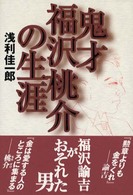Full Description
A generation after the publication of Joan W. Scott's influential essay, "Gender: A Useful Category of Historical Analysis," this volume explores the current uses of the term—and the ongoing influence of Scott's agenda-setting work in history and other disciplines. How has the study of gender, independently or in conjunction with other axes of difference—such as race, class, and sexuality—inflected existing fields of study and created new ones? To what extent has this concept modified or been modified by related paradigms such as women's and queer studies? With what discursive politics does the term engage, and with what effects? In what settings, and through what kinds of operations and transformations, can gender remain a useful category in the 21st century? Leading scholars from history, philosophy, literature, art history, and other fields examine how gender has translated into their own disciplinary perspectives.
Contents
Introduction, Judith Butler and Elizabeth Weed
Part I: Reading Joan Wallach Scott
1. Speaking Up, Talking Back: Joan Scott's Critical Feminism, Judith Butler
Part II: The Case of History
2. Language, Experience, and Identity: Joan W. Scott and the Theoretical Challenge to Historical Studies, Miguel A. Cabrera
3. Out of Their Orbit: Celebrities and Eccentrics in Nineteenth-Century France, Mary Louise Roberts
4. Historicially Speaking: Gender and Citizenship in Colonial India, Mrinalini Sinha
5. Gender and the Figure of the 'Moderate Muslim': Feminism in the Twenty-first Century, Elora Shehabuddin
6. A Double-Edged Sword: Sexual Democracy, Gender Norms, and Racialized Rhetoric, Éric Fassin
Part III: Seeing the Question
7. Seeing beyond the Norm: Interpreting Gender in the Visual Arts, Mary D. Sheriff
8. Unlikely Couplings: The Gendering of Print Technology in the French Fin-de-Siècle, Janis Bergman-Carton
9. Screening the Avant-Garde Face, Mary Ann Doane
Part IV: Body and Sexuality in Question
10. The Sexual Schema: Transposition and Transgenderism in Phenomenology of Perception, Gayle Salamon
11. Foucault and Feminism's Prodigal Children, Lynne Huffer
12. From the 'Useful' to the 'Impossible' in Joan W. Scott, Elizabeth Weed
Thinking in Time: An Epilogue on Ethics and Politics, Wendy Brown
Contributors
Index








